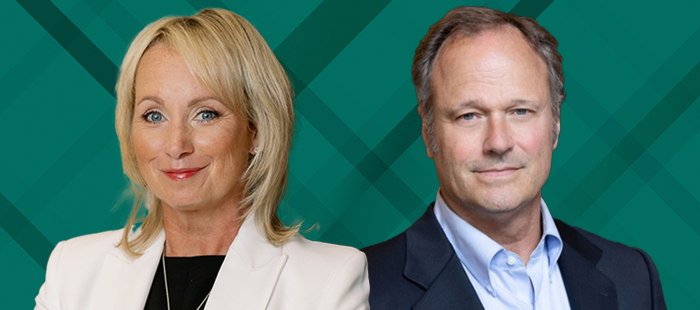A Culture of Continuous Innovation
- Business schools that are reluctant to challenge the status quo risk becoming complacent, inhibiting a culture of innovation.
- To become more innovative institutions, business school leaders should elevate diversity of thought among faculty and students and actively listen to industry partners.
- By providing space for experimentation—and understanding when experiments fail—business schools can support the ongoing generation of fresh ideas.
Learn about AACSB's Innovations That Inspire program at aacsb.edu/innovations-that-inspire.
Transcript
Subbu Sivaramakrishnan: [0:15] To build a culture of continuous innovation, one should never be happy with the status quo. If we are happy with the way things are, then we become complacent and we become stale very soon.
Mary Conway Dato-on: [0:29] Continuous innovation is a bit of an oxymoron. It's like continuous growth. It's very difficult to be continually growing, first of all, unless you're innovative. How are we continuously innovative? We only can do that in an ecosystem by bringing in new members into the ecosystem. Otherwise, it's just us talking to ourselves all the time.
[0:51] The beauty at the university is we're bringing in new students. It's through that innovation that comes because the students are new that we as professors then have to change what we're doing to be new. If you intersperse that with new community members, then you're constantly bringing in new perspectives. It's from those new perspectives that the innovation happens.
To build a culture of continuous innovation, one should never be happy with the status quo.
Nancy Swanger: [1:13] As business school faculty and probably administrators, we don't need to be on this quest to prove that we might be the smartest people in the room. We need to take a step back and listen to our industry partners, our stakeholders, and our alums who are out there doing whatever it is every day.
[1:32] Possibly, those alumni are doing things in areas outside of what their original degree could have been with us. That's the other piece of being innovative and current is realizing we're just not turning students out for this one, little niche opportunity. It's about educating a broad student so that they can take advantage of all the opportunities that might come along.
Andrés Rosas Wulfers: [1:56] One way to support a culture of continuous innovation is to start by promoting diversity. We can benefit immensely from a very diverse faculty, to start with, with different backgrounds, different experiences, even different disciplines at the undergraduate level. That can provide different visions for our students and create a critical mass for our faculty.
Lee Miles: [2:31] Business schools must and need to embrace continuous innovation. That means they have to develop a progressive and permissive culture in which staff and students have the support to develop their own ideas and to develop in a framework where they can move forward with it.
[2:49] That means that universities and business schools, in particular, have to develop innovative frameworks to support staff, so they can take their ideas forward. Also, students have the space to develop those ideas.
We can benefit immensely from a very diverse faculty, to start with, with different backgrounds, different experiences, even different disciplines at the undergraduate level.
Sri Zaheer: [3:01] What has worked for us and for me, in particular, is to identify individuals of the school who are entrepreneurial and innovative and make sure they're supported, that they are elevated, and when they fail, that it's fine to fail, and help them stand up and start other things.
[3:21] Usually, the ones who are entrepreneurial, they want to do more and more things to innovate. Once that starts and people notice it, it creates this culture of innovation throughout the school.
Kathryn Ernst: [3:33] If you're truly listening to your students and to your employers in the business community, you have no choice but to find ways to address those innovations and create that change. It's important that a school be resourced properly to do this.
[3:47] We, every year, build in our budget a chance for us to go to not just academic conferences, but industry conferences.
[3:54] It's really important as a way to connect with employers and listen to what they're doing in market and in industry, so that we can take that back to the faculty, and to the community, and to the students, and to make sure that they're being taught the things that the employers need them to be taught.
Business schools can foster a culture of continuous innovation by not looking at it as a to-do activity but by making that culture a part of the ecosystem of the b-school.
Anshu Arora: [4:10] This is where you believe in your faculty. You believe in the students, the power that they bring to the table. It's having that seat at the table and not ending up with the menu.
[4:21] That's something which I feel that if you have the research innovation that can come from the grassroots level from your students, and then coming to the faculty, faculty are given a lot of autonomy, independence, and coming up with their own ideas, and let them experiment. Some ideas will be successful. Some will be a failure, which is OK. At least, we know what successful is.
Ben Eng: [4:40] Innovation is a means to an end, but it's not an end. What I mean by that is the end that business school should focus on is impact. If schools want to continuously make an impact, then they need to continuously innovate. Business schools should tie their innovation initiatives with their mission through their strategic plannings.
Madhavi Gokhale: [4:59] Business schools can foster a culture of continuous innovation by not looking at it as a to-do activity but by making that culture a part of the ecosystem of the b-school.
[5:13] Today, we do not have the luxury of choosing innovation as an option. B-schools can create this culture very organically by addressing the fact that if you become complacent, if you are happy with the status quo, that's an alarm bell. That should ring very loudly.






